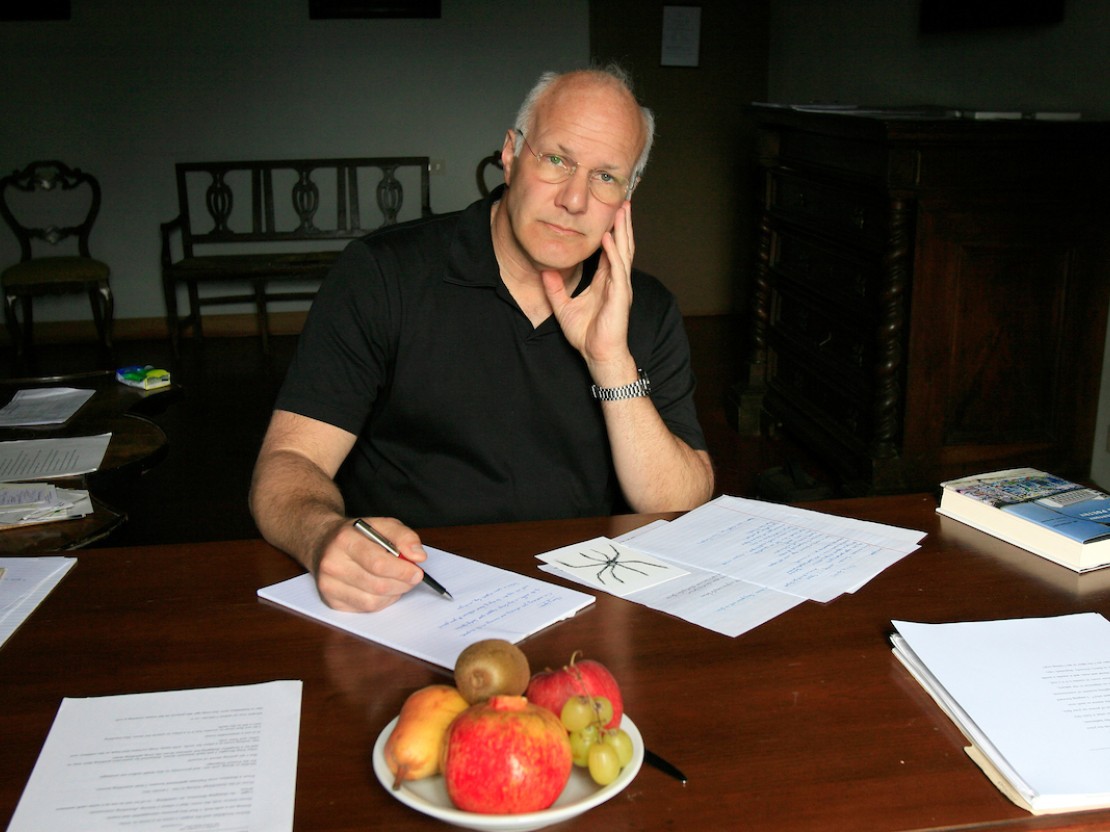Walking in Paris, as an early spring blossoms around him and bees depart their hives, Henri Cole considered the similarities between their work and his own: “Like a worker bee, I take something raw and try to make something gold from it,” he writes in his latest book, Orphic Paris.
Cole, Josephine Olps Weeks Professor of Literature, is the award-winning author of nine collections of poetry, including Middle Earth, which was a finalist for the Pulitzer Prize. Orphic Paris shares the pristine sentences and stirring insights of Cole’s poetry, but its form is a departure. The book is part diary, part essay, part autobiography, part commentary on poets and their art—and, because Cole is a “chronic photographer”—part photo album.
As a whole, Orphic Paris is a tender ode to the city he loves, an affection he shared with his French-born mother, who passed away not long before he started writing. “It is a mother’s book,” said Cole. “I also think the book is French literature-inflected, because it is meditative, and because of its associative nature.”
Orphic Paris came about after Cole was invited to contribute to a literature blog on The New Yorker’s website. He asked if he could write about Paris. After several diary-like entries—Cole visits the city several times a year—he began to see a book take shape. “I began to see themes, as if it were a carpet with certain colors reappearing,” said Cole. Those themes include the ones that have animated his poetry since he began writing as a college student—nature, friendship, death, Eros, and solitude.
When writing about poetry in Orphic Paris, Cole took the same “encouraging and upbeat” approach he uses in the classroom, though his vigorous opinions about his art are clear. A poem is something akin to taking a “thermal photograph” of the world, he writes, and a good poet must not only possess the ruthless ability to craft sentences, but must align with the quiet vibrations of the world. “A poem must burn with a truth-seeking flame and be a small symphony of language, too,” writes Cole.
Teaching CMC students about poetry, Cole said, goes beyond developing their skills in “assembling language.” “I really don’t think the most important thing I do is teach them about writing,” he said. “It is also to help them become who they are becoming. The most rewarding part of teaching is watching that.”
Paris played a vital and vibrant role in his own becoming. In a chapter the book’s reviewers described as “exuberant“ and “Whitmanesque,” Cole writes a cascade of sentences beginning with J’aime for the city in which “the call of life is so strong,” where “I wrote, I was nourished, and I grew.”
—Susan Price
